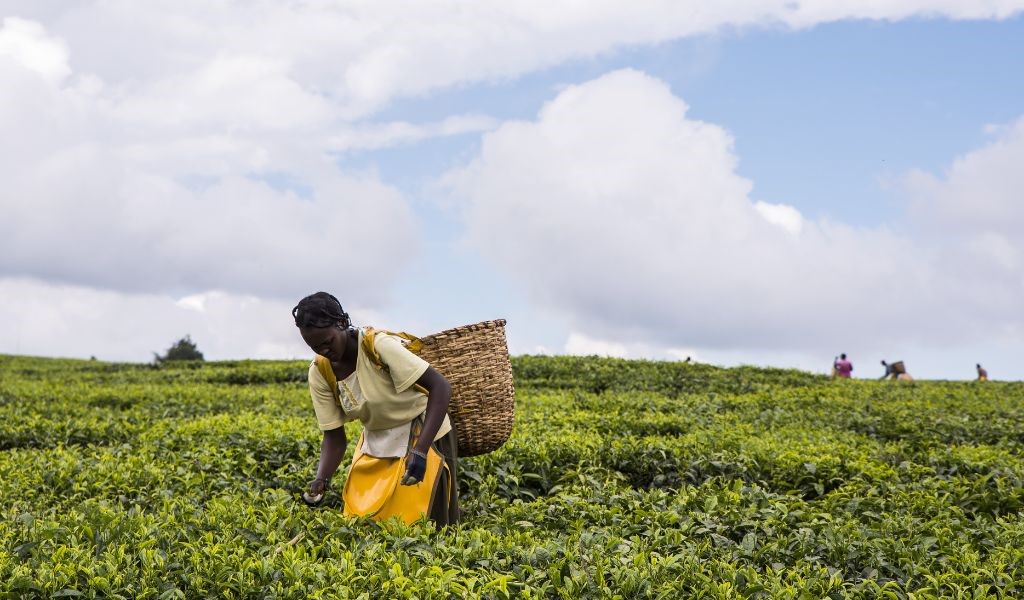Worker wages in plantations are low – often too low to make a decent living. Calculations show that, for instance, in Kenya, a living wage would be equivalent to 218 USD per month, twice the monthly pay that tea pickers in Kenya currently get. In Latin America, the difference between the legal minimum wage paid and the computed living wage benchmarks is less than in Africa but is still substantial. Studies of certification programmes, such as Rainforest Alliance or Fairtrade, show that certification improves workers’ conditions but not their wages. Of course, this contradicts what consumers expect from these certification programmes.

Benefits of certification need to outweigh the costs
Workers don’t choose to be in certification schemes like Rainforest Alliance; the owners of the plantation (or their marketing cooperatives) make that decision. It is a choice, and the plantation owners will only do it when the economics square. For them, the benefits of certification need to outweigh the costs. Higher salaries for workers without a higher price for the coffee, tea, or bananas are obviously not conducive to this short-term business calculation, and may make them hesitant to (re-)apply for certification.
The Rainforest Alliance tries to break this deadlock between consumers’ willingness to pay and estate owners’ hesitance to increase wages and create a context in which global brands will start contributing funds for plantations to improve the wages of their workers. In its RA2020 refinement of certification requirements, the Rainforest Alliance introduced some mechanisms that force plantations to be transparent about the wages paid to the different categories of workers and, in doing so, show the difference with the living wage benchmark in the sector.
This information would put pressure on certificate holders, traders, brands and consumers to resolve the living wage gap in their supply chain. Many brands have committed to paying a living wage in their direct operations and also want to have living wages in their supply chains. In short, the small changes in RA2020 could be disruptive innovations for systemic change in the sector.
However, at the moment, there is a major problem for this social-technical change to trigger this transformative change: A living wage contribution is not mandatory yet, and modalities to transfer this willingness to pay to workers are still in the pilot phase.
Initial responses to the living wage requirements
A new study led by researchers from the Institute of Development Studies captures the early responses to the new RA2020 requirements. The IDS Working Paper: Dispositions Towards the Living Wage Proposition: Baseline Report of the Rainforest Alliance Living Wage Strategy Evaluation synthesises the findings of four case studies in Brazil, Colombia, Indonesia, and Kenya, covering plantations of coffee, bananas, and tea.
We have found that the socio-technological proposition is highly contested in the sector. Certification holders fear the costs of the wage improvement plans without credible long-term commitments from downstream firms and brands to support them financially.
Worker unions fear that the direct negotiations between a plantation and its workers around a wage improvement plan could erode the power of unions in negotiating collective bargaining agreements. Without the support of a union, workers have little negotiating power in a sector where contracts are short-term and precarious.
The effects of the changed RA2020 certification requirements are still limited and largely constrained to sectors with relatively direct supply chains (bananas and tea) and where downstream buyers have piloted various living wage premium modalities. Certification owners and worker unions in Colombia and Kenya point to the potential negative effects of disrupting the collective bargaining system.
In Brazil and Colombia, non-salary elements are included in the wage calculations to show a smaller gap, and the certification auditors have difficulties deciding whether these are real or artificially inflated. In Indonesia, the issue of minimum wages is highly political, and gatekeepers even prevented the researchers from having interviews with certified tea plantations.
Towards a credible mechanism to channel a living wage premium to workers
Is this how disruptive systemic change looks like in practice? My research colleagues and I, who conducted the study, think that is too positive a framing, and we highlight the limits to the private regulation of wages in a segmented value chain.
We see a credible mechanism to fund wage improvement plans as a necessary condition for change and recommend a standard volume-based living wage premium paid by international brands, which is transferred to local committees with producer and worker representatives that could manage a cash transfer system using mobile banking and support collective bargaining.
Still, the Rainforest Alliance defends its approach to defining living wage contributions on a plantation-by-plantation basis. We think that a more sectoral approach is needed. We are not alone. Previous research, commissioned by the Ethical Tea Partnership in 2015, had raised similar concerns about the limits of direct negotiations at the level of plantations and proposed a more collaborative sectoral approach to raising wages. The main bottleneck for a transition towards a more sectoral approach seems to be the slow pace of collective action at the level of the global brands. Credible financial mechanisms that persuade plantation holders to pay higher-than-local salaries will require brands to put the money where their mouth is and start allocating and channelling financial resources.